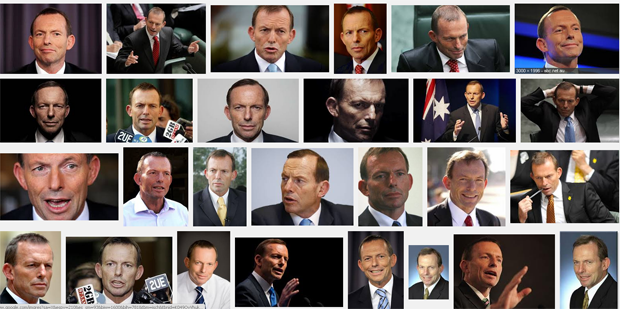
Australian prime minister Tony Abbott
In weeks where Prime Minister Tony Abbott of Australia has publicly praised the importance of freedom of speech in relation to the repeal of a section of the Racial Discrimination Act (18C) it might seem strange that civil servants caught criticising the government, or PM, can be sanctioned for illicit social media use. But to look at the two and suggest it implies gross, implicit hypocrisy, as some have, is not the most nuanced interpretation; however, the new policy code, which actually only applies to one government department bears looking at.
The new guidelines, Social Media Policy of the Department of the Prime Minister and Cabinet, outline what can and cannot be done on social media by employees and seem at pains to cover all bases while also being remarkably intrusive compared with other similar government documents.
The guidelines state they are aimed at ensuring the public believes in the impartiality of those in the Department of the PM&C. They govern social media use, including anonymous comments, during office hours and outside of work, on private devices. What has been noted by the media however is that anonymous speech may be sanctioned and employees are requested to “dob” — that is, report — on colleagues if they see them contravening the new policy. Staff can be reported for being “critical or highly critical of the Department, the Minister or the Prime Minister’’ or “so harsh or extreme in their criticism of the government, government policies, a member of parliament from another political party, or their respective policies, that they could raise questions about the employee’s capacity to work professionally, efficiently or impartially”.
Despite the leaked document now available online, the department maintains, according to the Canberra Times, that its policy on public social media use is a strictly internal document and will not comment. The department also states that no person should speak directly with the media but rather refer all queries to the media department, where the scribe can address queries in writing. This bureaucratic attempt at transparency or a “timely response” is neither limited to this department or government. Under the previous Labor government certain departments, such as the Department of Immigration and Citizenship, took much the same stance at times. Of course, now even refugee or boat arrival numbers are kept secret and weekly press conferences have been scrapped.
The policy has been defended by Freedom Commissioner Tim Wilson, who also defends the repeal of 18C in the name of freedom of speech. He told the Canberra Times: “As I read it, the current policy allows public servants to be critical of government policy, but requires that they do so in a way that does not compromise their capacity, or perception, that they will exercise their role as a public servant in an impartial way.” Wilson believes in the civilising power of codes of conduct and that such “voluntary” agreements do not undermine essential freedom of speech.
The document has rather broad-ranging edicts which could be open to interpretation. It is understood people may “participate robustly” in debate, but robustness may not trump impartiality or professionalism. It is useful then that Abbott’s daughter does not now work for the prime minister’s department. After publicly calling him a “lame, gay, churchy loser” in 2009 her impartiality could be questionable.
This article was published on April 16, 2014 at indexoncensorship.org




